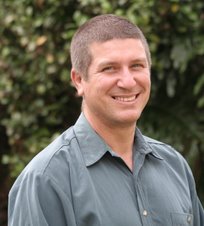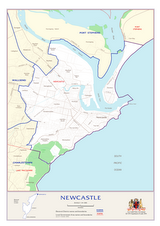Letter to the Vice-Chancellor
Dear Professor Saunders
As a Greens councillor on Newcastle City Council and the Greens candidate for the state seat of Newcastle, I have been approached by a number of people in the Newcastle community concerned about the university’s level of reliance on coal industry funding, and the potential this might have to expose the university to conflicts of interest and to restrict academic freedom.
I am a strong supporter of the University of Newcastle and I greatly value the educational, cultural and economic role it plays in our local community. I am sure that you are aware that the political party to which I belong also strongly supports Australia’s university sector. I understand the pressures that universities are now under to attract funding from the corporate sector to compensate for chronic under-funding from the Federal Government.
However, I am concerned that an increasing dependence on corporate sector funding has potentially damaging implications for our universities and for Australian society in general.
Such funding has the strong potential to compromise academic integrity and the values of open, accountable inquiry to which universities are traditionally committed. It can have a chilling effect, leading to a culture of organisational or individual self-censorship, and to a sense that the university and/or the individual beneficiaries of corporate funding have implicit reciprocal obligations to hold back information that might not benefit these industries, or even to actively and publicly defend them.
A recent article by Professor Scott Holmes in the Newcastle Herald (Wednesday, 1 November) defending the coal industry was the particular stimulus for this letter. I particularly noted that Professor Holmes wrote his article in his organisational capacity as Dean of Graduate Studies, a position associated with the university’s Research Unit, rather than in his individual academic disciplinary capacity as a Professor of Accounting, as is the normal practice with such articles.
I am a strong supporter of the role of the public intellectual, and of the unfettered right of academics to contribute to public debate on matters of public importance within their sphere of expertise. However, Professor Holmes’ authorship of the Herald article was specifically related to his organisational role with the university’s research unit, rather than to any relevant individual academic qualification or expertise he has in relation to the coal industry’s impact on climate change. I am aware that the university receives significant research funding from the coal industry. A public statement in support of this industry from an academic in a position directly associated with securing, receiving or administering projects associated with research funding from the coal industry clearly raises the issue of potential conflict of interest.
Given this public defence of the coal industry by a representative of the university's research unit, I believe it is in the interests of open inquiry and public accountability that the university disclose the extent to which it now depends on funding from the coal industry. I would very much appreciate specific information outlining the relevant amounts and the names of relevant research projects. In addition, could you please advise me of the systems that the university has in place to manage conflicts of interest that might arise as a result of pecuniary relationships with corporate funding providers, and the procedures used to protect the academic freedom and integrity of researchers involved in projects that receive such funding.
I am sure you can appreciate the importance of these matters to the university, to Newcastle, and to Australia in general. I believe Australia will increasingly look to institutions such as universities for advice based on independent, rigorous research on how to establish a just and sustainable society. It is crucially important that such research is seen to be free of any influence that might compromise its integrity, or limit the full and open disclosure of research results.
I look forward to your response, which I will be happy to convey in full to interested constituents.
Yours faithfully
Cr Michael Osborne
10 November 2006




